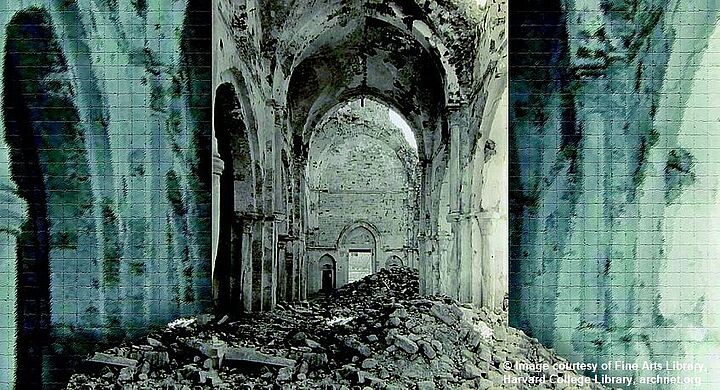Mittwoch, 16. Oktober 2024, 17:00 - 18:30 iCal
Ringvorlesung Turkologie Wintersemester 2024/25
Cultural Heritage in the Middle East and Central Asia: Conservation and Destruction
October 9th, 2024 - January 22th, 2025, 5PM - 6:30PM
Institut für Orientalistik, Hörsaal
Spitalgasse 2, Hof 4.1 (Campus Universität Wien), A-1090 Wien
Hybrider Event (an einem physischen Ort und online)
Scribal networks and the rescue of Armenian historiography in the seventeenth century
Tara Andrews (University of Vienna)
Of the thirty-five manuscripts that remain of the twelfth-century Chronicle of Matthew of Edessa and its continuation, not a single one dates from before 1590, but over half of them were produced by 1700. This pattern of survival reflects a wider reality for Armenian literature, where the ravages of war and persecution, especially in the 15th and 16th centuries, gave way to a period of relative peace in the 17th century that provided an opportunity for a conscious "rescue" of the Armenian literary heritage, especially (but not exclusively) centered around the Amrdolu monastery of Bitlis, near Lake Van. In this lecture I will present some of the features and puzzles of the manuscript tradition of the Chronicle that speak to this project of restoration. I will set this in the context of the networks of Armenian monastic scholars of the seventeenth and eighteenth centuries that stretched from the ancient homelands of the Caucasus - divided as it was between Safavid Persia and the Ottoman Empire - to Syria and Palestine, Poland and Hungary, and even as far as Italy.
Bio
Tara Andrews (S.B. MIT, 1999; M.Phil. Oxford, 2005; D.Phil. Oxford, 2009) has been University Professor of Digital Humanities at the Institute for History since 2016. Her fields of expertise include the history and historiography of the Christian Near East in the tenth to twelfth centuries, the application of computational and statistical methods for reconstruction of the copying history of ancient and medieval manuscripts (stemmatology), and reflection on the implications of employing digital media and computational methods in humanities contexts. Next to her scholarly publications, she is the author of the ‘Stemmaweb’ suite of online tools for analysis of text variants and their associated stemma hypotheses. She is currently PI of the ERC project RELEVEN (2021–26), which aims to bring a new perspective to the history of the eleventh century in the Christian world by digitally re-modeling the data we have.
Zur Webseite der Veranstaltung
Veranstalter
Kontakt
Ayse Dilsiz Hartmuth
Institut für Orientalistik
+43-1-4277-43405
ayse.dilsiz.hartmuth@univie.ac.at
Erstellt am Donnerstag, 19. September 2024, 11:20
Letzte Änderung am Montag, 23. September 2024, 07:50

